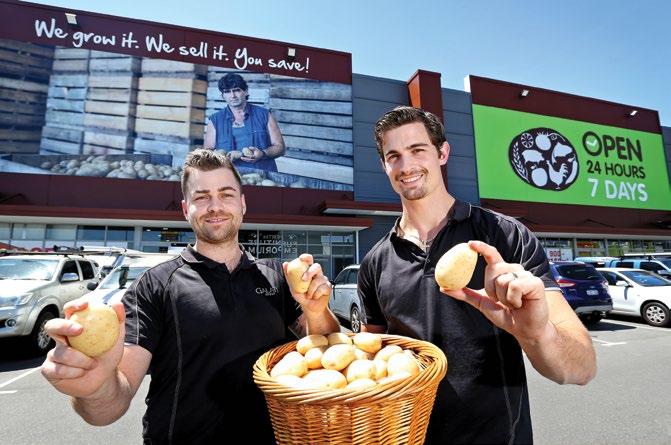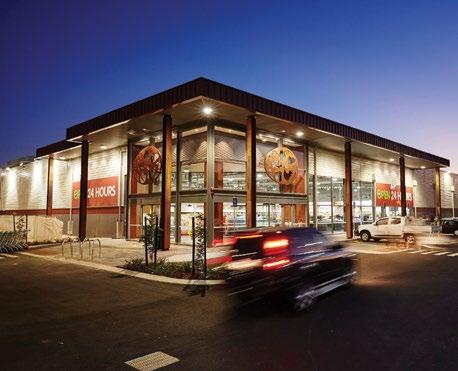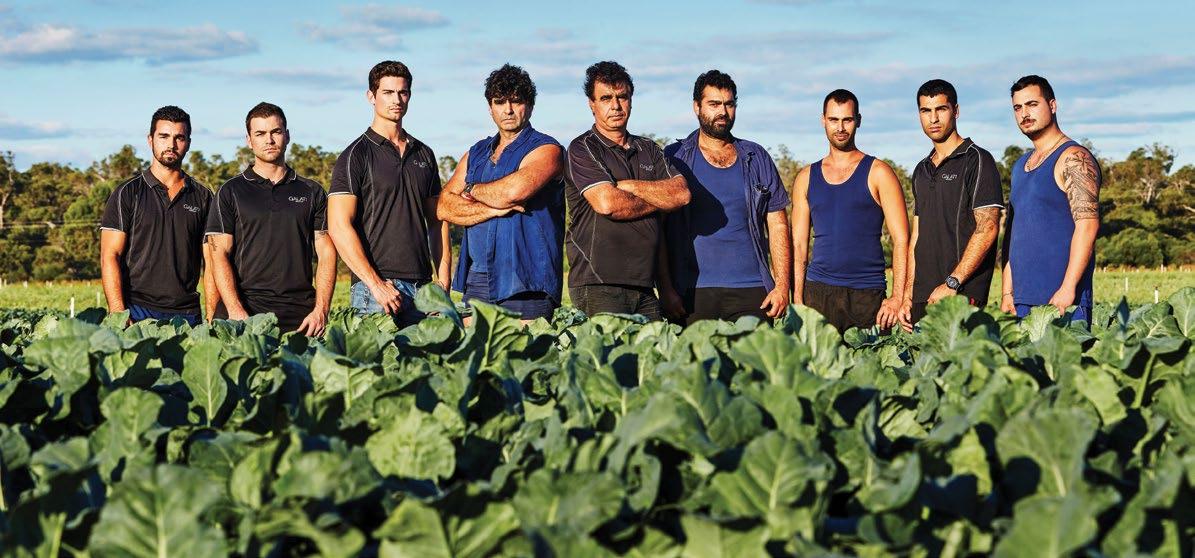
4 minute read
Frankie Galati
Frankie Galati Carrying on a potatogrowing legacy
Advertisement
LANCELIN
PERTH
MYALUP
PARKFIELD MANJIMUP
Name Business Age Location
Size Enterprises
Frankie Galati Galati Group 30 Manjimup, Myalup, Parkfield and Lancelin 650 hectares Potatoes, carrots, onions, broccoli
Q How did you first become involved in the potato industry? I was born into the industry. The Galati Group of Companies was birthed out of a family business that started two generations before me. There is a long history of fighting for the rights of potato farmers to be able to grow sufficient produce to service the expanding market.
3 FRANKIE Galati (right) with his brother, Sebastian Galati.
Q Your family opened the first Spudshed in Western Australia over 20 years ago. What does Spudshed provide to consumers over in the west in terms of fresh produce? We provide quality fruit and vegetables directly from our farm at an affordable price and value for our customers, and also continue to supply sustainable and profitable produce industry for the future.
Q What does your role as the CEO involve, and what are your responsibilities? I have a lot of responsibilities. I work across the business operationally, financially and culturally. I like to take a ‘hands-on’ approach and get involved in all aspects of the business. Q What do you enjoy most about working in the potato industry, and how do you maintain your enthusiasm? Eating potatoes! And I am grateful for all the opportunities that the industry provides for our company and the community. I enjoy the whole idea of growing vegetables as it is a requirement for every person everyone needs to eat.

Q What are the biggest challenges you face working in the industry, and how do you overcome them? Finding good water availability, and also land that is suitable and feasible to grow on. The increasing costs of production keeps us focused on innovation as well as being environmentally conscious.
Currently we are facing major labour shortages in the industry due to the COVID-19 crisis this has now led to an increase in labour costs as farmer and producers are all trying to hold onto their employees and poach others.
Q Where do you receive your practical advice and information from? A whole range of resources, economists, growers and my own research. I also rely heavily on agronomists, and other agricultural specialists who keep us on the cutting edge of crop protection and efficiency of resource uptake.
Q You pursued a modelling career, which led you to places around the world, including Sydney, Paris, Milan and New York. Why did you decide to return to the family business? Because I wanted to study business and chose to work with my family. I also wanted to return home for my girlfriend now wife if I’m really honest.
Q You also completed a commerce degree at Notre Dame University in Western Australia. How has this assisted you in your current role within the Spudshed business? This degree has given me the foundation I require to oversee the financial aspects of the business, as well as the ability to manage it more effectively. It has given me the professional tools to secure the future of the family business.
Q Where do you see opportunities for growth in the Australian potato industry? I see opportunities for export and pushing the local market to pursue those avenues. I would also like to see the health benefits of potatoes being publicised more.

Q Where do you see both yourself and Spudshed in five years’ time? I see Spudshed continuing to be a sustainable business and continuing to be strong retail player. We would like to continue to provide consumers Q How do you think more young people could be encouraged to study and take up jobs in the potato industry? with fruit and vegetables that I think my father, Tony Galati, are of a high standard. put the Western Australian Being sustainable and environmentallyconscious is at the core and heart of the business both now and into the future. Being sustainable and environmentally-conscious is at the core and heart of thebusiness. potato industry on the map and if there were more people like him, it would help bring more focus to this industry. I also think schools need to provide Q What is your vision for options for students to learn more about the industry so both the Western Australian that interest can be sparked at a and the national potato industry in much earlier age. Most people today the future? would not have any idea on how their A continual growth and availability of potatoes with a growth in the export market, as well as varietal selection to give people a wider selection to choose from at retailers. food is produced and what is required to get it to the shelves, if people did understand this, I believe more younger people would be brought into the industry.











